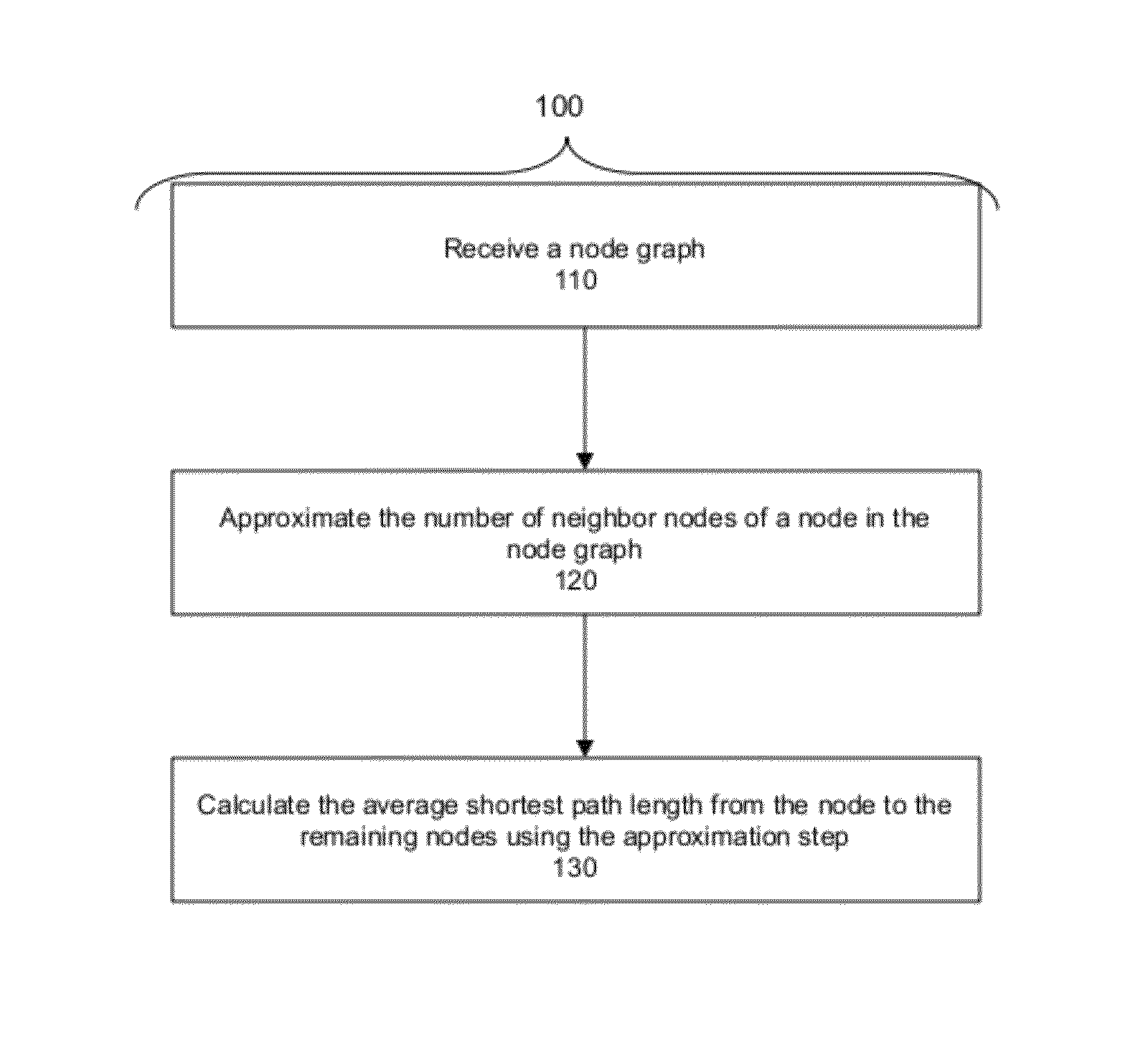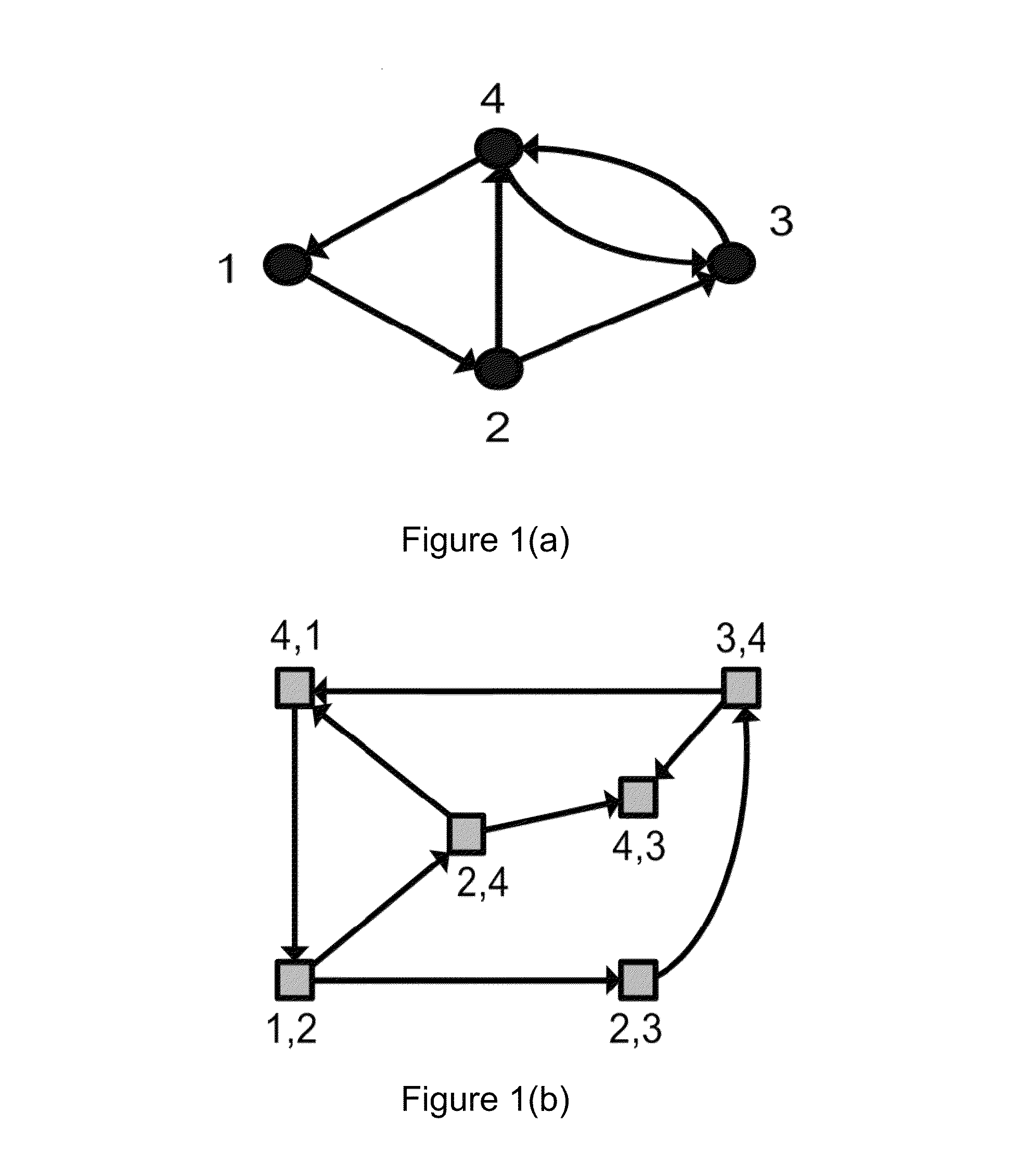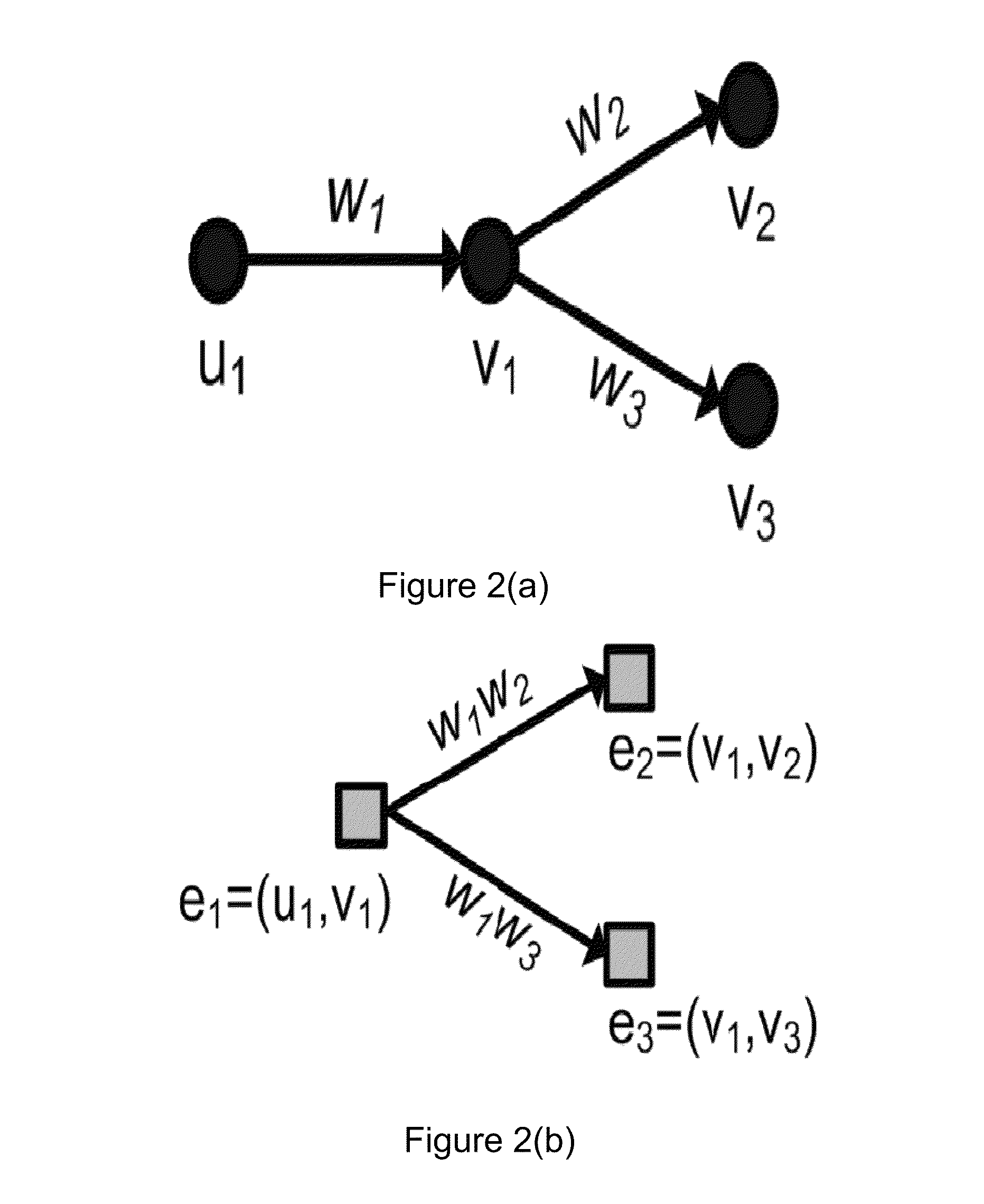Determining the importance of data items and their characteristics using centrality measures
a technology of centrality and data items, applied in the direction of dynamic trees, instruments, computing models, etc., can solve the problems of inability to accurately define centrality, and inability to develop accurate approximation schemes. , to achieve the effect of avoiding expensive or non-parallaxable operations, efficient, scalable, and accura
- Summary
- Abstract
- Description
- Claims
- Application Information
AI Technical Summary
Benefits of technology
Problems solved by technology
Method used
Image
Examples
Embodiment Construction
[0047]It will be readily understood that the embodiments of the present invention, as generally described and illustrated in the figures herein, may be arranged and designed in a wide variety of different configurations in addition to the described presently preferred embodiments. Thus, the following detailed description of the embodiments of the present invention, as represented in the figures, is not intended to limit the scope of the invention, as claimed, but is merely representative of selected presently preferred embodiments of the invention. The following description is intended only by way of example, and simply illustrates certain selected presently preferred embodiments of the invention as claimed herein.
[0048]The table supplied below is provided to assist in comprehending the content of this application and the present invention:
[0049]
TABLE 1Table of symbolsSymbolDefinitionDefinitionnnumber of nodes in a graphmnumber of edges in a graphAadjacency matrix of a graphindeg(v)...
PUM
 Login to View More
Login to View More Abstract
Description
Claims
Application Information
 Login to View More
Login to View More - R&D
- Intellectual Property
- Life Sciences
- Materials
- Tech Scout
- Unparalleled Data Quality
- Higher Quality Content
- 60% Fewer Hallucinations
Browse by: Latest US Patents, China's latest patents, Technical Efficacy Thesaurus, Application Domain, Technology Topic, Popular Technical Reports.
© 2025 PatSnap. All rights reserved.Legal|Privacy policy|Modern Slavery Act Transparency Statement|Sitemap|About US| Contact US: help@patsnap.com



